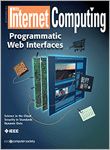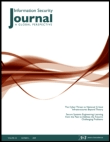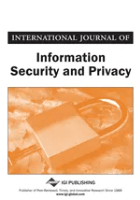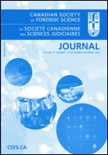
Forensic Science International-Digital Investigation
Scope & Guideline
Unlocking Insights in Digital Evidence Analysis
Introduction
Aims and Scopes
- Digital Forensics Methodologies:
The journal aims to advance methodologies for digital forensics, including memory analysis, data recovery, and artifact examination across diverse platforms such as mobile devices, IoT, and cloud systems. - Emerging Technologies in Forensics:
It explores the application of emerging technologies like artificial intelligence, machine learning, and blockchain in digital forensic practices, aiming to improve detection and analysis capabilities. - Legal and Ethical Considerations:
The journal addresses the legal implications and ethical considerations of digital forensics, focusing on privacy concerns, data integrity, and the admissibility of digital evidence in court. - Cross-Disciplinary Collaboration:
It encourages interdisciplinary research that combines insights from computer science, law enforcement, cybersecurity, and forensic science to develop comprehensive forensic solutions. - Incident Response and Cybercrime Investigation:
The journal emphasizes the importance of digital forensics in incident response and cybercrime investigation, providing frameworks and tools to enhance the efficiency of these processes. - Educational and Training Aspects:
It also focuses on educational initiatives and training methodologies that aim to bridge the gap between theoretical knowledge and practical skills in digital forensics.
Trending and Emerging
- IoT Forensics:
Research on IoT forensics is rapidly growing, addressing the unique challenges posed by interconnected devices and the need for specific methodologies to analyze data from these systems. - AI and Machine Learning Applications:
There is a significant increase in the application of AI and machine learning in digital forensics, focusing on automating analysis, improving detection accuracy, and enhancing investigative processes. - Cybersecurity and Digital Threat Analysis:
With the rise of cyber threats, the journal is increasingly publishing studies on cybersecurity measures, threat modeling, and forensic techniques to combat cybercrime. - Blockchain and Cryptocurrency Forensics:
The emergence of blockchain technology and cryptocurrencies has prompted a surge in forensic research aimed at tracing and analyzing transactions within these decentralized systems. - Legal and Ethical Implications of Digital Forensics:
An increasing focus on the legal and ethical implications of digital forensics is evident, with discussions around privacy, data protection laws, and the impact of digital evidence on legal proceedings. - Cloud Forensics:
The trend towards cloud forensics is notable, with more research dedicated to understanding how to effectively investigate and analyze data stored in cloud environments.
Declining or Waning
- Traditional File System Forensics:
There is a noticeable decline in research dedicated to traditional file system forensics, as newer technologies and methodologies, such as cloud and IoT forensics, become more relevant. - Basic Malware Analysis Techniques:
Research centered on basic malware analysis techniques seems to be waning, likely overshadowed by more advanced approaches involving machine learning and AI-driven methods. - Physical Device Forensics:
The focus on physical device forensics, such as direct hardware analysis, appears to be decreasing as digital investigations increasingly rely on remote and cloud-based evidence. - Generalized Digital Evidence Frameworks:
There is a trend away from generalized frameworks for digital evidence, with a shift towards more specialized and context-specific forensic methodologies. - Static Analysis of Applications:
Static analysis methods for application forensics are less frequently discussed, as dynamic analysis and behavioral approaches gain traction due to their effectiveness in real-time investigations.
Similar Journals

Electronic Markets
Transforming Understanding of Market DynamicsElectronic Markets, published by Springer Heidelberg, stands as a premier academic journal in the realm of Business and International Management, Computer Science Applications, and Economics, among other fields. With an impressive impact factor and consistent recognition in the top quartile (Q1) of multiple categories, this journal facilitates the dissemination of pioneering research that explores the intersections of technology, commerce, and consumer behavior. Covering a broad spectrum of pertinent topics from market innovation to economic implications of digital platforms, Electronic Markets serves as a vital resource for researchers, professionals, and students intent on understanding the evolving landscape of electronic commerce. The journal showcases rigorous peer-reviewed articles, ensuring the highest standards of scholarly excellence. Its long-standing reputation and comprehensive scope make it an essential publication for those engaged in the critically important dialogue around digital transformation in today's economy.

Journal of Digital Forensics Security and Law
Decoding Digital Crimes with Academic Rigor.Journal of Digital Forensics, Security and Law is a prominent open-access journal dedicated to the rapidly evolving fields of digital forensics, cybersecurity, and legal issues related to digital evidence. Published by the Association of Digital Forensics, Security & Law, the journal aims to create a central hub for researchers, practitioners, and educators to share knowledge, innovative methodologies, and the latest advancements in these interdisciplinary areas. With an ISSN of 1558-7215 and an E-ISSN of 1558-7223, this journal has been serving the academic community since 2013, providing unrestricted access to groundbreaking research that addresses the complexities of security and law in the digital age. The importance of this journal lies in its commitment to enhancing the understanding of legal frameworks and investigative techniques that safeguard digital assets while maintaining compliance with evolving regulations. Researchers, professionals, and students alike will find valuable insights and practical applications within its pages, contributing to the ongoing dialogue surrounding digital forensics and cybersecurity.

JOURNAL OF FORENSIC SCIENCES
JOURNAL OF FORENSIC SCIENCES is a premier publication dedicated to advancing the field of forensic science through high-quality research and innovation. Published by Wiley, this journal has been a reliable source of cutting-edge findings since its inception in 1961, with a continued commitment to excellence expected through 2024. With an ISSN of 0022-1198 and an E-ISSN of 1556-4029, the journal covers critical aspects of forensic medicine, including genetics, pathology, and molecular biology. Notably, it holds a Q2 ranking in Pathology and Forensic Medicine, reflecting its high impact and relevance in the field. Researchers and professionals benefit from comprehensive access to groundbreaking studies and discussions that drive advancements in forensic methodologies and technologies. While not an open access journal, its impact factor and rigorous peer-review process ensure that every article contributes significantly to the body of forensic science knowledge. Whether you are a seasoned forensic expert or an aspiring student, the JOURNAL OF FORENSIC SCIENCES serves as an essential resource for cutting-edge research and discoveries.

IEEE INTERNET COMPUTING
Bridging Theory and Practice in ComputingIEEE Internet Computing is a prominent journal in the field of computer networks and communications, published by the esteemed IEEE Computer Society. With an impressive impact factor and ranking in the Q1 category for 2023, it stands out as a vital resource for researchers, professionals, and students alike, seeking to delve into the latest advancements and trends in internet computing. Since its inception in 1997, the journal has provided a platform for pioneering studies and insightful discussions that bridge theory and practice in the rapidly evolving digital landscape. The journal is indexed with an excellent Scopus rank of #77 out of 395, placing it in the 80th percentile of its category, which underlines its relevance and influence in the academic community. While it currently does not offer Open Access options, its rich archive of scholarly articles remains accessible to those affiliated with research institutions and libraries. Furthermore, the journal's comprehensive coverage continues through 2024, ensuring it remains at the forefront of the discipline.

Journal of the Association for Information Systems
Connecting Ideas, Inspiring Innovation in Information SystemsThe Journal of the Association for Information Systems (ISSN: 1536-9323, E-ISSN: 1558-3457) is a premier academic publication dedicated to advancing the field of information systems and computer science applications. Published by the Association for Information Systems in the United States, this journal has established itself as a leading source of cutting-edge research, evidenced by its strong impact factor and recognition as a Q1 journal in both Computer Science Applications and Information Systems categories for 2023. With a commendable Scopus ranking of #82/817 in Computer Science Applications (90th percentile) and #43/394 in Information Systems (89th percentile), the journal serves as a vital platform for the dissemination of innovative ideas and practices that shape contemporary information systems research. Although it operates on a traditional access model, the journal remains committed to fostering scholarly communication and providing insights that are instrumental for researchers, professionals, and students alike. Its scope encompasses a diverse range of topics within the field, making it an essential resource for anyone seeking to deepen their understanding of information systems in our rapidly evolving digital landscape.

International Journal of Electronic Security and Digital Forensics
Unveiling the future of digital forensics and security.The International Journal of Electronic Security and Digital Forensics, published by INDERSCIENCE ENTERPRISES LTD, is a leading platform for disseminating scholarly research in the realms of cybersecurity, digital forensics, and electronic security. Established with the objective of bridging the gap between theoretical advancements and practical applications, the journal spans critical areas such as network security, legal implications of digital forensics, and reliability in safety measures. With its ISSN 1751-911X and E-ISSN 1751-9128, the journal aims to provide valuable insights into emerging technologies and methodologies while maintaining high academic standards, as reflected in its diverse quartile rankings across multiple categories in 2023. Operating from the United Kingdom and catering to a global audience, the journal is committed to fostering innovative research that contributes to safer digital environments. Researchers, professionals, and students will find a wealth of information and opportunities for collaboration in this specialized field, making International Journal of Electronic Security and Digital Forensics an essential resource for advancing knowledge and practice.

Information Security Journal
Shaping the Dialogue in Information Systems and Management.The Information Security Journal, published by Taylor & Francis Inc, is a pioneering platform dedicated to disseminating knowledge in the realms of information security, computer science applications, and information systems management. With an ISSN of 1939-3555 and an E-ISSN of 1939-3547, this journal has successfully carved its niche within the Q2 quartile of the 2023 rankings for both Computer Science Applications and Information Systems and Management, while also being recognized in Q3 for the Software category. Located in the United Kingdom, the journal has been committed to advancing research and fostering innovation from 2008 through 2024, making it an essential resource for academics and professionals alike. With a significant Scopus ranking in its fields—placing 43rd out of 148 in Decision Sciences and 271st out of 817 in Computer Science Applications—the journal stands as a vital source of interdisciplinary insights. Although it does not currently offer open access options, the quality of publications and the journal's dedication to the field ensure that it remains a compelling choice for researchers seeking to publish their findings or stay abreast of current developments in information security.

International Journal of Information Security and Privacy
Transforming Ideas into Actionable Security SolutionsInternational Journal of Information Security and Privacy is a pivotal resource for scholars and practitioners in the rapidly evolving field of information systems. Published by IGI Global, this esteemed journal, identifiable by its ISSN 1930-1650 (E-ISSN 1930-1669), explores critical aspects of information security and privacy, focusing on innovative approaches, technologies, and best practices that safeguard data in an increasingly digital world. Since its inception in 2007, it has contributed significantly to academic discourse, addressing major challenges faced by organizations and individuals alike. Although it currently ranks in the Q4 quartile and occupies the 249th position out of 394 in the Scopus computer science category, the journal has a commendable reach and continues to attract impactful research. As part of its commitment to advancing knowledge, the journal encourages contributions that deliver actionable insights, making it an ideal platform for researchers, professionals, and students interested in the forefront of information security. Engaging with this journal provides access to the latest findings and methodologies while offering a space for the exchange of transformative ideas in the realm of information privacy.

Canadian Society of Forensic Science Journal
Exploring the Intersection of Science and JusticeThe Canadian Society of Forensic Science Journal, published by Routledge Journals, Taylor & Francis Ltd, serves as a vital platform for the dissemination of research in the field of forensic science, particularly focusing on pathology and forensic medicine. With a rich history since 1968 and an impressive commitment to academic rigor, this journal has established itself as an essential resource for researchers, practitioners, and students alike. Recognized within the Q3 category in the 2023 Scimago Journal Rank in Pathology and Forensic Medicine, it ranks #162 out of 208 journals in its category, affirming its relevance and contribution to the field. While it does not operate under an open access model, the journal remains accessible through institutions and libraries and provides critical insights into advancements and best practices in forensic science. Through its comprehensive approach, the journal aims to advance forensic knowledge and contribute to the professional development of those engaged in this pivotal area of study.

Informatics-Basel
Bridging Ideas in Communication and TechnologyInformatics-Basel is a leading international, peer-reviewed journal published by MDPI that has been at the forefront of disseminating high-quality research in the field of informatics since its establishment in 2014. Based in Switzerland, this Open Access journal strives to provide a platform for innovative studies across various domains, including Communication, Computer Networks and Communications, and Human-Computer Interaction, demonstrating its strong impact within these fields with impressive rankings: Q1 in Communication and Q2 in both Computer Networks and Communications and Human-Computer Interaction. Researchers and scholars are encouraged to contribute to the advancing dialogue on critical issues and emerging technologies, as evidenced by its esteemed Scopus rankings, placing it in the top percentiles of its respective categories. With its commitment to elevating knowledge accessibility, Informatics-Basel has become an essential resource for the academic community, stimulating collaboration and the sharing of ideas from 2014 to 2024 and beyond.